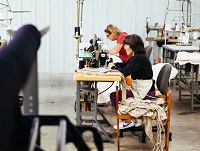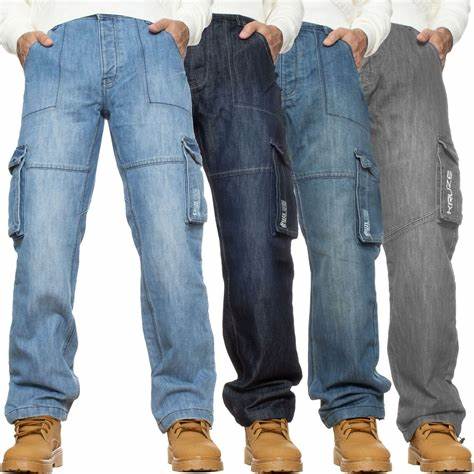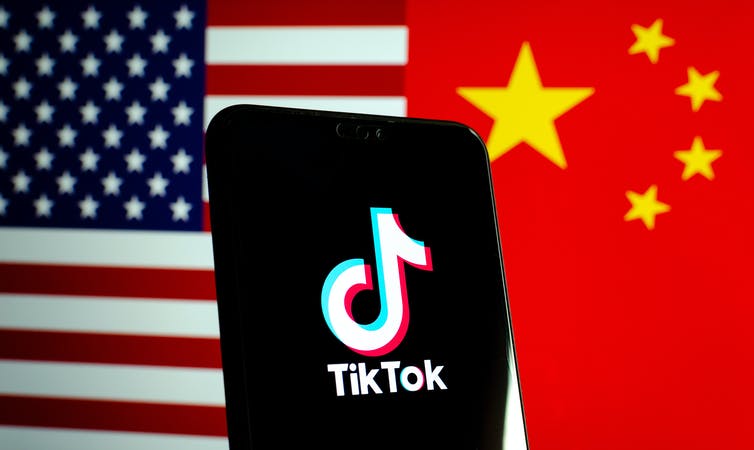FW
Frankfurt is ready to host Techtextil 2017. Techtextil 2017, will be held concurrently with Texprocess, a show for the textile processing industry, from May 9-12.
Leading Japanese manufacturer of computerized flat knitting machinery, Shima Seiki will present its latest innovations along with its Italian subsidiary Shima Seiki Italia .On display will be Shima Seiki’s line-up of advanced computer design systems and computerized flat knitting machines, The knitting technology sector this year is well represented by German companies. Albstadt-based circular knitting machine manufacturer Mayer & Cie will be present again, however, it will not be exhibiting any machines. Another Albstadt-based manufacturer, Groz-Beckert, a leading provider of industrial machine needles, precision parts and fine tools, will be there with its high-quality needles and system parts for circular, warp and flat knitting segments.
German company, Stoll, an established manufacturer of flat knitting machines, will be presenting designs and applications of its flat knitting technology at Techtextil Karl Mayer, an Obertshausen-based manufacturer of warp knitting machinery, will be participating in Techtextil with a focus on textile-reinforced concrete and functional clothing for the sports and athleisure sectors.
Jakob Müller, a Swiss specialist in technology for manufacturing of woven and knitted tapes and webbings, as well as technical textiles, printed narrow fabrics and winding machinery, will exhibit its latest technological solutions at the fair
Jeanologia, a leader in the development of sustainable technologies for finishing garments has developed a process called One Glass, One Garment, this will finish garments with 95 per cent savings in water, 90 per cent in chemicals and 40 per cent in energy.
Jeanologia, a Spanish specialist for sustainable technologies for garment finishing, has been researching for over 20 years on how to transform the jeans industry. Jeans is the second best-selling garment in the world after the T-shirt but its production is enormously polluting and manual. Jeanologia’s objective as a technological partner is to transform this industry, to make jeans sustainable. Its solutions based on laser, ozone and nano-bubbles are able to increase productivity, reduce the time to market and reduce production costs. Jeanologia has customers across five continents and exports of machinery and services account for 90 per cent of its turnover.
Jeanologia products and solutions are currently being used in more than 45 countries, including México, Colombia, Brazil, USA, Germany, Italy, Portugal, India, China, Russia, Japan, Morocco, and Bangladesh. Among its customers are major brands such as Levi's, Polo Jeans, Abercrombie & Fitch, Edwin Japan, Pepe Jeans, Diesel, Hilfiger Denim, Salsa jeans and other large retailers.
The Karachi Cotton Association (KCA) has expressed its serious concern on reports that the government is considering levying duties and taxes on import of raw cotton. Due to devastating cotton crop failure in cotton season 2015-16 and shortfall in cotton crop 2016-17 season, the local textile mills are compelled to import raw cotton from aboard to meet their requirements of basic raw material.
KCA says if duty/tax is levied on import of cotton, the cost of doing business of the local textile mills will be considerably increased which will make them uncompetitive in the international market. The KCA, therefore, strongly recommends the government not to impose any duty and tax on import of cotton so that the local industry could meet its requirement of shortage in raw material from abroad and ensure exports of optimum quantity of value added products of raw cotton in the international market to earn valuable foreign exchange for the country.
The KCA strongly endorses to continue a free trading policy of cotton which is free exports and import of cotton without any quantitative or qualitative restrictions in the coming years to safeguard the interest of all sections of the cotton trade.
Home textile companies are leaving for Heimtextil, the international trade fair for home and contract textiles, takes place January 9 to 12 in Frankfurt, Germany. Portuguese home textiles manufacturer Mundotêxtil is joining Italian yarn spinner Marchi & Fildi’s smart cotton yarn Ecotec to launch what it calls the Smart Cotton Towel at Heimtextil that saves up to 77.9 per cent water in production, as well as reductions in energy and carbon dioxide emissions.
This innovative range of Mundotêxtil towels is made from 65 per cent Ecotec Polaris yarn in 100 per cent cotton blended with organic cotton or Ecotec Chagall yarn containing cashmere. Mundotêxtil was launched in 1975, and is now one of the leading towel manufacturers in Europe and the world. Located in Vizela in Northern Portugal, Mundotêxtil employs 600 skilled staff and exports to over 40 countries. The company supplies top department stores, hotels, spas, supermarkets, boutiques, catalogues and e-commerce companies. It has invested in technology that permits for improvements in the levels of water use, lowering energy consumption, treating effluent and controlling waste disposal.
The new strategic choice to develop a more responsible towel with Ecotec Smart Cotton by Marchi & Fildi is part of its commitment to enhancing the eco footprint and sustainability quotient for products and processes throughout its supply chain. Ecotoc by Marchi & Fildi is the “smart” range of cotton yarns produced with an exclusive, made in Italy, transparent, traceable and certified process that transforms pre-consumer, pre-dyed cotton clippings into a high quality material with strong efficiency in water, energy and CO2 savings.
Ecotec Smart Cotton is also a partner of Creativity Lifestyle and Sustainable Synergy (C.L.A.S.S.), a multi-platform hub based in Milan specialising in integrating a new generation of eco values into fashion and home products and companies. Also at Heimtextil, Trident Global, the US division of the Trident Group, will unveil eight new bed sheet and towel technologies.
Jeffrey Kambak, CEO of US operations for the Trident Group, says they will now be able to bring a sense of luxury to consumers’ lives by improving their daily bath and sleep experiences. With this new range of products that focuses on premium blends and innovation in yarn construction, the brand is offering everyday indulgence.
Trident’s expanded line of bedding offerings includes Hyde Park, a luxury collection of Egyptian cotton with a 500 thread count, giving strength and a lustrous sateen weave, and Tetra Fine, a performance sheet that provides an all-in-one offering of four key attributes, combining moisture management, quick dry comfort, anti-pilling and wrinkle resistance for a premium sleep experience.
According to Tofail Ahmed, Bangladesh’s commerce minister foreign buyers are not paying enough for apparel and garments manufactured in eco-friendly factories. Investments have been made to make factories eco-friendly, however, buyers have not increased prices. On the contrary, they have been cutting prices.
Factories turned green after the Rana Plaza collapse in 2013 that claimed the lives of 1,130 people, with a view to improve workplace safety and environment. After this incident, multiple steps were taken to ensure workers' safety.
The national initiative, Accord, and Alliance inspected over 3,780 factories and ended up renovating 47 factories and closing 39 of them. The initiative also resulted in seven factories in the country receiving leadership in energy and environmental design certificates from the Green Building Council of the US.
Less than 2 per cent factories in Bangladesh are non-compliant, which is an internationally recognized standard, says Tofail. Germany being the second largest market for Bangladesh, labour laws of the country were amended and workers welfare association were allowed to be formed in export processing zones.
The European Union have for long been recommending Bangladesh to bring in one single law for workers inside and outside the Export Processing Zones. The EU recently sent a letter to the government threatening temporary suspension of the trade privileges for Bangladesh, if necessary amendments to the EPZ law are not completed by the middle of this year.
The European Union’s move comes after the Rana Plaza tragedy that took place in 2013 killing hundreds of people. The European Union and Bangladesh have signed along with the International Labor Organization the sustainability compact. The European Union has understood the working class workers have no safety or insurance in most Bangladeshi factories.
This move comes just before the Geneva International Labor Organization meet to be held in July. Foreign investors made it clear that they favor a solution where the same law would regulate labor relations inside and outside the EPZs. This is what they already observe in other countries where they operate. European investors would not be inclined to invest in EPZs anywhere until and unless they have the assurance that the corresponding legislation is fully aligned with UN core labor conventions. For that reason, the current draft EPZ law has become quite a touchy topic. It would have to be found related to key issues such as energy supply, infrastructure enhancement and training of labor.
The 17th World Textile Conference of Autex will be organized by the Piraeus University of applied sciences shaping the future will be held on the island of Corfu also known as Kerkyra one of the most cosmopolitan islands of Greece from May 29 to 31 2017.
Continuing the tradition established by previous successful editions of the World Textile AUTEX Conferences, the forthcoming conference will encompass wider area of the textile and fibre science and engineering. The 17th AUTEX Conference aims in becoming a forum for the presentation of research novelties, exchanging of ideas, and bringing together the textile academic, industrial and business communities. Specialists from all over the world will share their knowledge, experiences and they will envisage the future of textiles.
The conference will take place in Corfu, one of the most beautiful Greek islands, in Ionian Sea. Corfu Holiday Palace hotel will host the conference and it is located in the best and picturesque position on the island. Corfu Island has numerous wonderful sights. Many conquerors arrived on the island through centuries, including British and Italians, leaving an evident mark on the local culture.
According to recent figures from the Arab Brazilian Chamber of Commerce (ABCC), Brazilian textile and apparel export to the Middle East surged during the first two months of 2017, increasing by 87.5per cent compared to the same period a year ago, touching $3 million up from $1.6 million in January and February 2016. This growth has been led by increasing demand for synthetic fabrics and sisal rope used in ships and rigs in the Arab markets.
Brazil’s textile exports performance during the first two months of the year signify its steady growth in market share in Arab continues which is looking for quality raw materials and finished goods. The Arab countries are some of Brazil’s largest markets for textile and apparel exports, particularly for segments such as party wear, children’s wear, and beach wear. Based on ABIT’s data, the United Arab Emirates had the highest imports, followed by Algeria, Egypt, Morocco, and Lebanon.
To boost Brazilian textile and apparel exports, the Brazilian Textile and Apparel Industry Association and the Brazilian Trade and Investment Agency (Apex-Brazil) have launched the Texbrasil program, which benefit affiliated exporters. Official figures showe Brazilian textile and apparel companies that participated in the program expanded their export markets to Arab countries by 40 per cent in 2016, with a total value touching $4.1 million in 2016 from $2.9 million in 2015.
"With the growing importance and acceptance of technology in textile industry, companies are looking at highly automated, environmentally conscious production facilities in the US Southeast, where the infrastructure for this industry’s success is already in place. Proposed policy changes and US border tariffs are also aiding the growth shift to the US market. As consumers become more socially aware, many retailers are encouraging their suppliers to build an environmentally safe US presence to capture the ‘Made in America’ privilege."

With the growing importance and acceptance of technology in textile industry, companies are looking at highly automated, environmentally conscious production facilities in the US Southeast, where the infrastructure for this industry’s success is already in place. Proposed policy changes and US border tariffs are also aiding the growth shift to the US market. As consumers become more socially aware, many retailers are encouraging their suppliers to build an environmentally safe US presence to capture the ‘Made in America’ privilege. Hence, the country is finally seeing a resurgence in textile industry. Within the last five years, there have been significant announcements by foreign-owned textile companies investing in the US, with site selection choices clustered in the Southeast once again. These location decisions are driven by port proximity, low utility costs, a quality affordable labour pool, and access to training.
What clicks for Southeastern US

Since Southeastern US was once flooded with textile facilities, the infrastructure necessary for the industries success is already in place. Wastewater treatment plants are designed to accommodate the fabric dyeing process and have the ability to treat this kind of effluent without much capital investment or new permitting. The cotton belt in the Southeast provides close proximity to one of the industry’s major raw materials. A history of textile manufacturing has left behind a legacy workforce with the technical know-how and work ethic to support industry newcomers. There are training program to prepare workers to operate highly automated facilities, and universities have thriving textile engineering programs.
Moreover, the shale-oil boom has given a significant competitive advantage to the US. Industrial users are seeing natural gas prices average about one-third of those in most other industrial economies. Lower natural gas prices are driving US industrial electricity rates lower. US rates are on average 30 per cent to 50 per cent lower than for other major exporters.
Changing consumer preferences and fast fashion trends have forced apparel companies to make smaller batches of clothes more frequently, that is when speed-to-market becomes crucial. For instance, Zara is delivering new products worldwide to their stores just 15 days after design is started. When every day matters to bring products to market, it is no surprise that companies want to be close to the United States, the world’s second-largest textile consumer market.
On January 23, 2017, President Trump signed an executive order to end the TPP, which aimed to create an export-led growth model supporting free trade with 11 countries in the Pacific, excluding China. The agreement would have phased out approximately 18,000 tariffs among the participating countries and helped smaller companies navigate export rules, trade barriers, and red tape. Trump argued that by ending the TPP, companies would be more likely to send FDI to the US to avoid import tariffs and sluggish logistics. Trump has proposed a 20 per cent tariff on incoming goods from Mexico and up to 35 per cent from China. In a low margin business, these tariffs would create a significant impact on the textile industry’s bottom line. While there is no way to predict what these policy changes will have on the textile market, companies are strategizing and investing resources to explore capacity additions in the US.
The US has also created a niche and competitive advantage in highly technical material manufacturing. Capital investment in yarn, fabric, and non-apparel textile product manufacturing has risen from $960 million to $1.7 billion from 2009 to 2015 — a 75 per cent increase. It is poised for growth in smart textiles or nanomaterials. The US textile industry saw $2 billion in capital investments in 2015. Medical applications are being introduced that monitor and communicate physiological changes. These materials will be able to administer drugs and detect blood clots. These types of technologies will require the presence of an extensive university research network and the ability to transfer technology to the labour force.
In an effort to modernise the apparel industry, Atlanta-based SoftWear Automation, recently introduced a solution called the ‘sewbot’. Sewing was once thought to be a delicate job only for human hands, but sewbots are using cameras to track needle stitching and coordinate precise movements of fabric using lightweight robots. If sewbots gain traction, changes could be even more drastic for the industry.
The textile industry in the US, specifically the Southeast, is poised for growth. Textile and apparel markets will grow across the globe but the United States will attract the more complex, higher-paying jobs, while providing access to one of the world’s largest consumer markets.
Vietnam’s market shifted from a centralized communist market to a mixed economy thereby boosting FDI in the country. Today, Vietnam is one of the fastest growing market in Southeast Asia. Vietnam’s textile and garment industry are exported to 40 countries including the US, European Union, and the far eastern countries like the People’s Republic of China, Japan and South Korea.
United States is the largest export market of Vietnam’s garment fabrics followed by EU. However, Vietnam has captured only 1.9 per cent share of the union’s total import value, According to the association, presenting opportunities for growth. Vietnam’s narrow growth is due to lack of modernization in designs. But many countries are opting for Vietnam instead of China because of cheap labor and raw materials. South Korea has heavily invested in the country followed by Luxembourg and Singapore.
The Trans Pacific Partnership plays an important role in the economy of Vietnam. Hence garment enterprise expect the Association of South East Asian Region (ASEAN) where Vietnam is also an active member to sign a Free Trade Agreement between the latter and the EU, this can benefit local garment enterprises in gaining more options to get material for garment production from other ASEAN countries.
According to General Department of Customs figures, in 2016 textile and garment sector’s total exports value was $23.8 billion, an increase of 4.6 per cent year-on-year. Many enterprises invested in building textile and dying factories on an extensive and intensive scale to boost opportunities in production and business for the planned Trans Pacific Partnership (TPP), says association. But now that TPP with the US is no longer happening, experts say these facilities would help the textile and garment industry complete production processes and actively source material, focusing on significant opportunities offered by other FTAs, such as the Vietnam-EU FTA and the Vietnam-Republic of Korea FTA.










